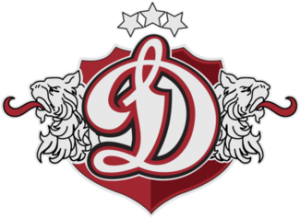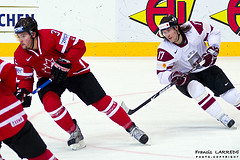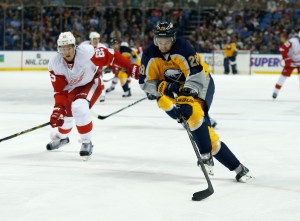Among the former Soviet republics, the most frequently mentioned “hockey countries” (after Russia, of course) are usually Belarus and Ukraine, sometimes Kazakhstan too: but in the last few years a “new” regional power is also emerging, and it goes under the name of Latvia. In the following paragraphs I will outline the history of its national team, trying to provide a sort of “preview” in view of the upcoming World Championship.

Northern heroes
Named Dynamo, as many other teams born in the Soviet era (as for hockey, think of Dynamo Moscow, or Dynamo Minsk, but also of Dynamo Berlin, now one of the most powerful teams of the Deutsche Eishockey Liga under the new name of Eisbären Berlin; but the use of such a name, with all its then-political implications, is extended to many other disciplines), the Riga team has had something of a troubled existence: founded in 1946, its original incarnation managed to reach the finals of the Soviet championship only in 1988, being defeated by CSKA Moscow: before its folding in 1995, it had been already renamed twice, first Stars Riga and then Pārdaugava Riga. It was there, nonetheless, that a name known to almost every fan of Soviet and Russian hockey started his coaching career: Viktor Tikhonov, which guided the team from 1968 to 1977.

Born again
In 2008 it was decided to re-establish the team, this time as a franchise and using its original denomination: from the following season, Dynamo Riga started playing in the Western Conference of the KHL, where it managed to make it to the playoffs already in 2010, winning also their first series against SKA St. Petersburg. With a roster mainly comprised of Latvian-born players, Dynamo ended the 2013-14 season in the 5th place of its conference (ranking 3rd in the Bobrov division), with a record of 22–11–5–16.
Challenging the world
As you probably may imagine, the Latvian national team is mainly comprised of Dynamo players: currently coached by Aleksandrs Beļavskis, himself their former team captain, the Balts are currently ranked by the IIHF at place 9: their best achievements are, so far, a seventh place at the World Championship, a feat they accomplished three times (in 1997, 2004 and 2009), and a quarter-final defeat against Canada last year in Sochi. After that, they ended 11th at the Minsk World Championship, despite strong signs of improvement.

Prague is on fire
Part of Group A at the upcoming Czech tournament, the Latvians will face Sweden, Canada, the Czech Republic as well as Switzerland, Austria, France and Germany. The roster was formally announced a couple of weeks ago and, despite Latvia being the birthplace of the first Soviet player ever drafted by the NHL (Viktors Hatuļevs, who was drafted by the Flyers in 1975, but never made the trip to North America), it has only one player currently signed to a Canadian club: Nikita Jevpalovs, serving in the Blainville-Boisbriand Armada of the QMJHL. It should be pointed out, anyways, how virtually all the Latvian players playing in the NHL (for instance Ronalds Ķēniņš of the Canucks and Kristers Gudlevskis of the Tampa Bay Lightning) were busy with the playoffs at the time of the national team list’s presentation (the third Latvian currently in the NHL is Zemgus Girgensons of the Sabres, who was not included in the list after an injury suffered during the past months: still, he remains until now the highest-drafted Latvian in NHL history).

Europe is calling
Twelve players out of the 26 chosen for the World Championship are playing in Dynamo Riga, one in HK Riga (basically the former’s farm team), two in other KHL clubs: the remaining ten players (we already mentioned Jevpalovs) are scattered all over Europe, for instance in the Czech Republic, in Austria, Italy, Hungary, and Switzerland. There’s even a player of a second-division Swiss club.
Such a “bizarre” roster should not surprise: Latvia is a small country, and it employs its main forces in its own KHL team. Sure, the rest of the members of this years’ national team will somewhat be considered strange anyways, but the tiny Baltic state still has the numbers to do well, at least against some of its fellow group participants. As the old sentence goes, “see what happens…”.